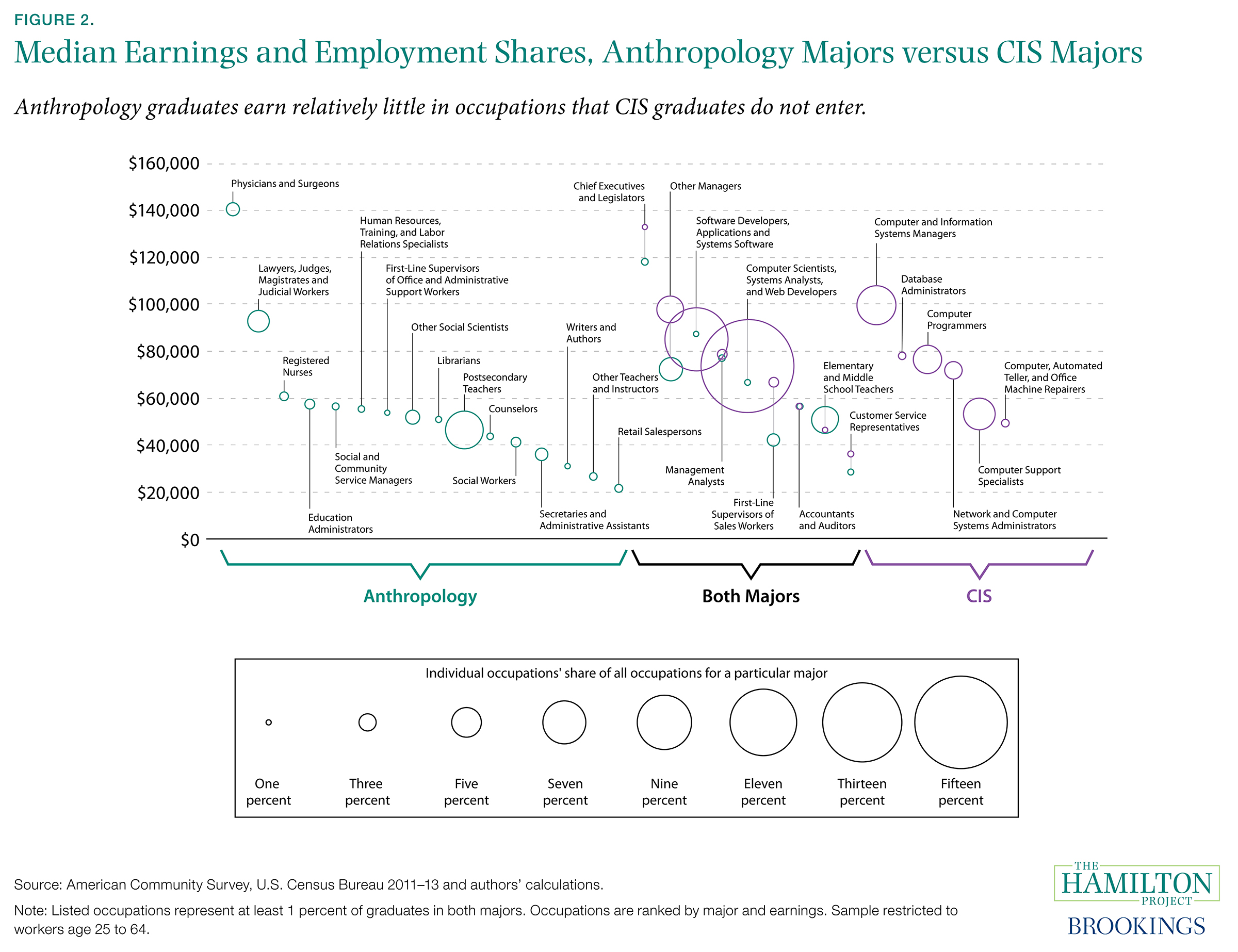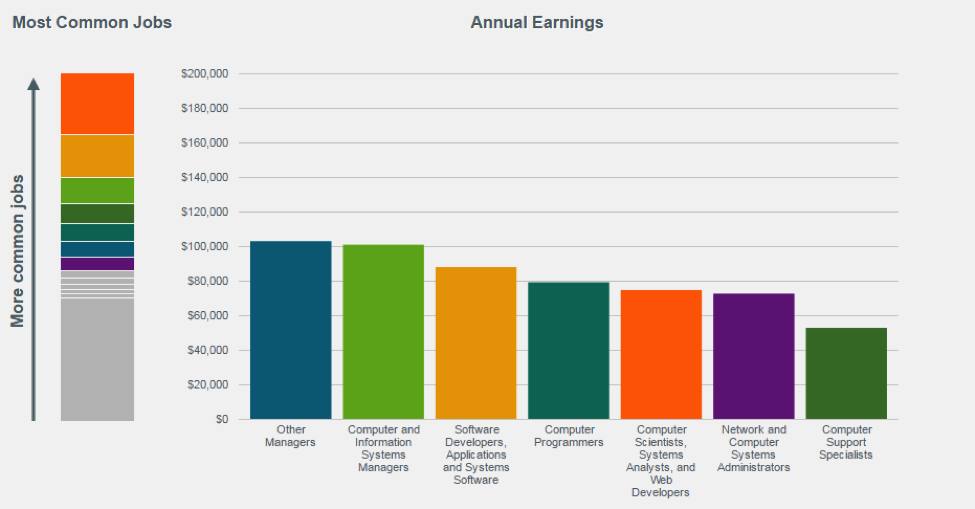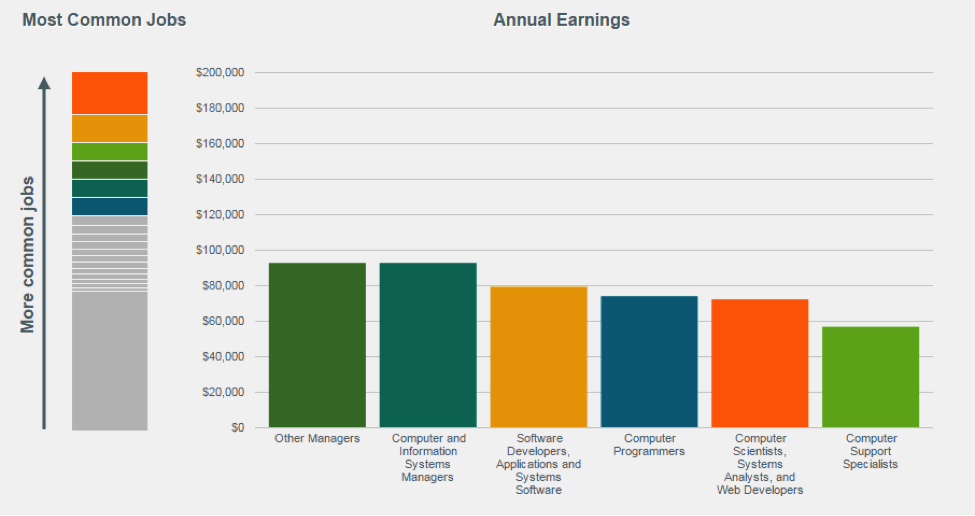At this point, the benefits of obtaining of a college degree are well-documented. College graduates earn more money over their lifetimes, are less likely to be unemployed, and exhibit better health outcomes than their non-collegiate peers. But not all college degrees are created equal. College students who major in studies like economics or computer science, for example, will see dramatically higher lifetime earnings than students who major in social work or fine arts.
But there’s more than just your major that will weigh on your future earnings. A new analysis from the Hamilton Project at the Brookings Institution sheds some light on how post-college career decisions and gender (and, yes, college major) interact to produce different earnings outcomes. The analysis finds that, generally speaking, while college major does affect earnings, the decisions people make about what career to pursue play a large role as well. In fact, different career paths can explain 15 to 25 percent of earning variations among people who majored in the same thing in college. Philosophy majors who go on to work as management analysts earn a salary of about $72,000; those who become post-secondary teachers earn only $51,000.
To illustrate how college majors and career paths interact, the Hamilton Project researchers compared graduates from two different majors, anthropology and computer and information systems (CIS). Perhaps not surprisingly, anthropology majors earn less (about $48,000 a year) than CIS majors (about $69,000 a year). This is, in large part, due to post-college career paths: Anthropology graduates are less likely to work in the sort of high-paying jobs that CIS graduates work in. The chart below, from the Hamilton Project report, illustrates how career paths vary between these two majors:

When anthropology and CIS majors enter similar careers, their earnings are generally much more comparable. The chart below shows earnings in jobs that anthropology majors hold, CIS majors hold, and both majors hold.

Anthropology and CIS majors who work as management analysts, for example, earn roughly the same salary. In other words, if you’re worried that majoring in anthropology was a huge mistake from an earnings perspective, there’s still time to turn things around.
The Hamilton Project report also includes some depressing statistics about gender gaps in labor force participation and pay. At all ages, women are less likely to be in the labor force than men—the labor force participation rate gap peaks at 13.5 percent for men and women ages 35 to 44. Women also earn less than men, even after controlling for college major. Women ages 25 to 34 earn about 23 percent less; women ages 35 to 44 earn about 36 percent less; women ages 45 to 54, 39 percent less, and women ages 55 to 64, 33 percent less.
Consider the salaries of CIS majors. This chart (a screenshot from the report’s interactive graphic) illustrates the most common occupations for male CIS majors, and approximate earnings for each occupation:

A male CIS major employed as a computer and information systems manager or a computer programmer earns $100,799 or $79,062, respectively. The next chart shows the same information for female CIS majors:

A female CIS major employed as a computer and information systems manager or a computer programmer earns only $92,571 or $73,791, respectively. Unfortunately, gender plays an awfully big role in earnings, no matter the career path.




